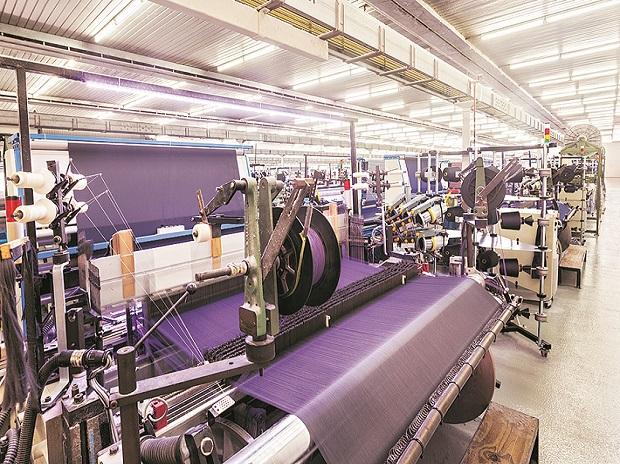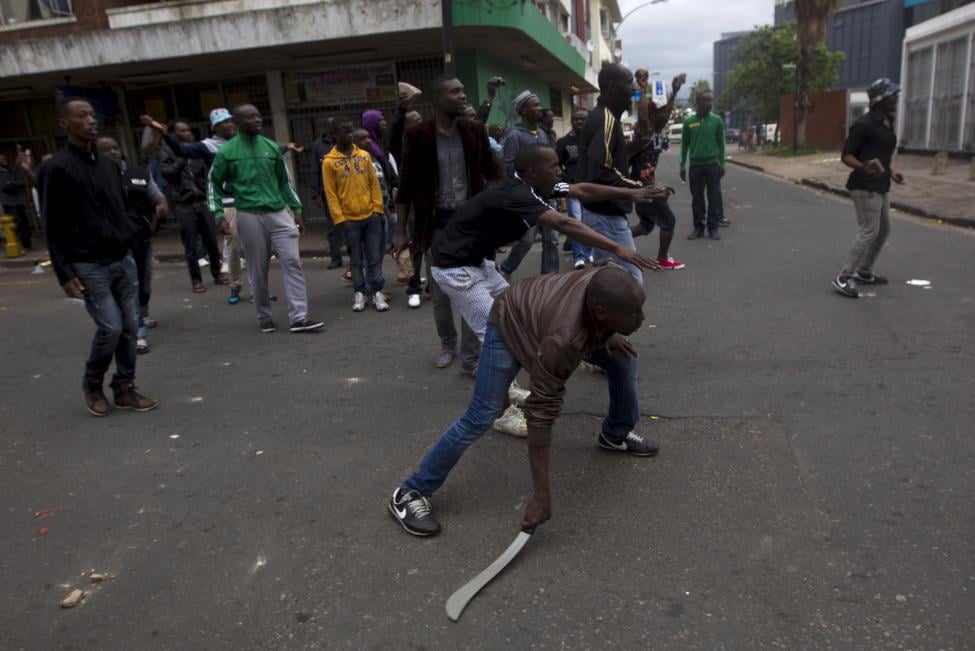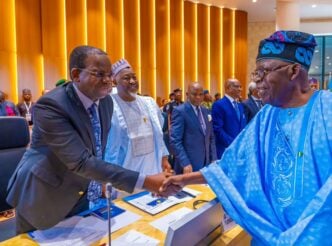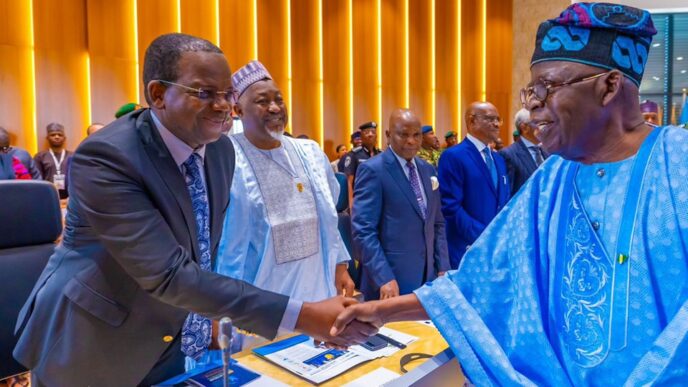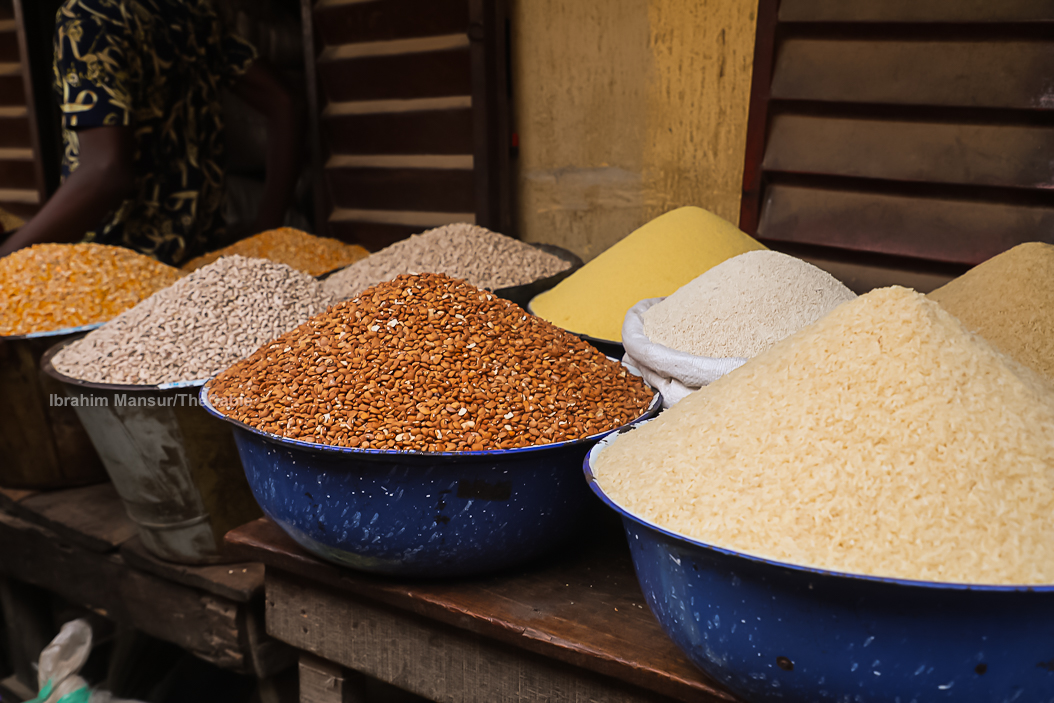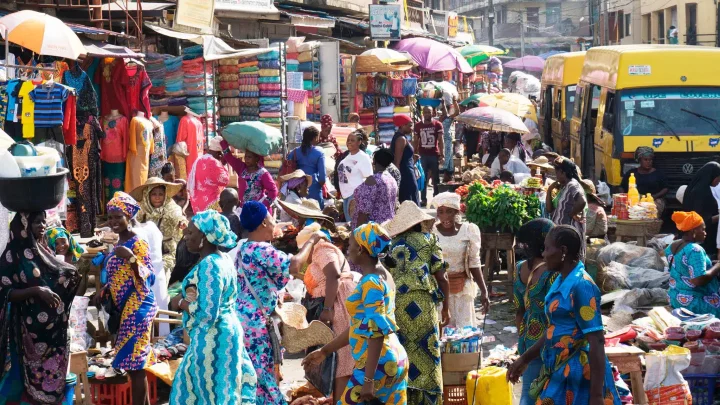Textile manufacturing
BY EYITAYO O. ANDE
When information filtered into the public space a few months ago that, as part of President Bola Tinubu’s ‘Renewed Hope Agenda’, the Federal Executive Council (FEC) had approved the establishment of the presidential council on industrial revitalization roadmap, suggesting that the disposition of the current administration is to create a workable roadmap to stimulate and revitalise domestic production in key industries necessary to improve the nation’s economic development, my excitement could not be contained. This is because taking concrete steps to increase domestic production is necessary to tame the raging regressive ‘inflation tax’ presently ravaging Nigerians, especially the poor and low-income earners.
Of particular interest to me is the discussions by this administration of its doggedness and unflinching commitment to resuscitate the ailing or, better put, moribund Nigerian textile industry. Just a few days ago, the Vice President, Kashim Shettima, during a meeting with a delegation from the International Cotton Advisory Committee (ICAC) led by its Executive Director, Eric Trachtenberg, discussed ideas for reviving the Nigerian cotton and textile industry. Shettima was quoted to have disclosed, “The Nigerian government plans to revive the textile industry to boost job creation in the country with a target of 1.4 million jobs annually in the cotton/textile sector by unlocking the cotton value chain component.”
Ostensibly, while this was not the first time Nigerians have been told of the federal government’s readiness and unwavering objective to work assiduously in fixing the rot in the textile industry because previous administrations, at different times, have highlighted the countless problems confronting our textile industry and assured Nigerians that it would be resolved, it however always ended as mere empty rhetoric. Several reports stressed how the Jonathan and Buhari administrations made plans to revive the sector but didn’t yield any results, despite the huge funds injected into it. A particular report showed how a total sum of 473 billion naira was said to have been assembled from 1999 to 2023 for the sector without much results.
Advertisement
Nonetheless, I am very hopeful this time around that this policy pronouncement by the Tinubu administration, unlike with past administrations, would not end up as trifling grandiloquence. Making sure that he gets his presidential directive to revamp the distressed textile industry over the line, in my opinion, should be of topmost priority to his administration, in view of the courage he pulled off with the repealing of the fuel subsidy policy on Day One of assumption in office which could not be done by his predecessors – although it appears that we are back to the era of fuel subsidy payment with the naira slide following the Central Bank of Nigeria’s currency reforms even if the government would not admit it, and has equally been argued by a plethora of economic experts that a staggered implementation of the fuel subsidy removal would have been more economically helpful, which perhaps unknown to many Nigerians has been in place since the 1970s via the ‘The 1977 Price Control Act’ enacted by the military administration of Olusegun Obasanjo to cushion the effects of the stormy inflationary measures, where petrol was sold to Nigerians at a price below its production cost.
Having been born and bred in the ancient town of Kaduna, the administrative seat and former political capital of Northern Nigeria, I witnessed first-hand, the immense flourishing and growth of so many textile industries in the late 70s and 80s. At that time, northern Nigeria was a major centre of textile production and trade. Kaduna State boasted of exceptionally vibrant textile and cotton companies like Kaduna Textile Mills, United Nigerian Textiles Limited, Unitex Limited, Arewa Textiles, Nortex Nigeria Limited, Finetex Limited, Supertex Limited, etc, with the immensely positive effects working in these companies had on the wellbeing and comfort of some of my colleagues in secondary school whose parents had the rare privilege of working there.
These companies, like the about two hundred other functional mills in the country scattered all over Kaduna, Kano and Lagos back then, were the envy of all as the industry was a key player in the national economy – the cotton value chain contributing $2 billion to the Nigerian GDP annually, and creating hundreds of thousands of direct and indirect jobs. During this period, the Nigerian state implemented economic nationalism which sought to increase the prosperity and power of the country and its people through restrictive trade policies and practices.
Advertisement
This had mammoth consequences on the Nigerian textile industry at the time; it did not just satisfy the local consumption with a robust domestic market but also had significant exports to West Africa as disclosed by the editorial of the World Intellectual Property Organization Magazine titled ‘The Modern Tale of Nigerian Wax-Resist Textiles’, which revealed that Nigeria held 63 percent of the remaining West African textile manufacturing capacity. Likewise, Nigeria was second in Africa only to South Africa in terms of textiles production capacity.
Interestingly, during this period, the main raw material for the production of textiles, cotton, was extensively grown as a cash crop by over 600,000 local cotton farmers spread all over Nigeria especially in the northern part, enabling the attainment of the economic principle of ‘Backward Integration’ which improved the operational efficiency and the bottom lines of these textile industries.
However, the industry, over the years has agonisingly witnessed a spiral decline occasioned by the ‘market-based economic reforms’ and trade liberalisation due to the Structural Adjustment Programme (SAP) introduced in the mid-80s by the military government of General Ibrahim Babangida, of which many economists say Tinubunomics seems to be the same cardinal policies which made up the ‘IMF-SAP’. In addition, the variety of local and global political and economic factors aided its ruin. With these economic reforms brought spiking production costs which pushed up the local production price of textile products, making imported textiles relatively cheaper, and leading to an avalanche of demand for imported products even when, in some cases, they were inferior to those locally produced.
This industry is in dire strait as data from the National Bureau of Statistics (NBS) showed that textile imports rose alarmingly just three years by 106.7 percent from 182.5 billion naira in 2020 to 377.1 billion naira in 2023. This is simply a reflection of the total collapse of domestic production and the local market, which undeniably is taking a hard toll on Nigeria’s economy and prosperity. In the same vein, the erstwhile governor of the Central Bank of Nigeria, Mr. Godwin Emefiele, during a stakeholders’ meeting with cotton, textile, garment producers and farmers in Abuja stated that “Nigeria spends about $4 billion annually to import textiles according to official statistics, but smuggled textiles haemorrhage the country $2.2 billion annually.”
Advertisement
This is unsustainable and a harbinger of economic catastrophe. Moreover, the National Union of Textile Garment and Tailoring Workers of Nigeria (NUTGTWN) has repeatedly canvassed for the enforcement of ‘Executive Order 003’ which is aimed at promoting local production and reducing import reliance, emphasising that South Africa’s strategy of ‘Buy South Africa’ must be fully adopted to reverse the current trend where 90 percent of textiles in Nigeria are imported annually. Similarly, the Union reported a mass influx of Chinese cheap textiles into the country which data showed is around 80 percent of Nigerian annual textile import bill, and the incidences of re-exporting of Chinese textiles via neighbouring countries like the Benin Republic through smuggling into Nigeria.
In the late 70s and early 80s, this industry attracted enormous amounts of foreign investments as virtually all the textile companies were in collaboration with investors from one country or the other, predominantly from China. Conversely, with the foreign investors exiting the Nigerian market, the country now imports eight out of every ten textiles from China, depleting our foreign reserves in the process, enriching the Chinese government economically, and exporting the hundreds of thousands of jobs opportunities once enjoyed by Nigerians.
Furthermore, available data from Mordor Intelligence, a market intelligence and advisory firm whose expertise is in mapping complex business ecosystems around the globe, showed that major Chinese textile companies are increasing investment plans in some African nations, helping these countries achieve generous revenues from textile exports. Specifically, in 2023, South Africa, Ethiopia, Kenya, Lesotho, and Egypt earned $3.8 billion, $2.5 billion, $1.5 billion, $1.2 billion and $1.1 billion respectively from exporting textiles and apparel. While these countries in sub-Saharan Africa earned decent revenues from textile exports in 2023 and previous years, Nigeria has been spending $4 billion annually on importing textiles.
With the Nigerian economy currently teetering at inflection point, successfully seeing through this presidential directive of the ‘Textile Industry Revamping Policy’ of the present administration will have insightful and telling outcomes not only on the fiscal and monetary policies, but also on the nation’s economy as a whole. Visibly, one of the prime reasons why the Central Bank of Nigeria may appear to be struggling in its bid to effectively carry out some of its statutory responsibilities such as influencing the monetary policy effectually, stemming the naira collapse, showing greater financial and macroeconomic vigour is as a result of the low level of funds in the foreign reserves, which is brought about by the gigantic annual import bill spending of $4 billion just on textiles and the many reported incidences of monumental diversion of funds via corruption.
Advertisement
Equally, this perhaps is one of the reasons the country under this administration is earnestly seeking and taking up loans from multilateral financial institutions like the cumulative $4.95 billion revealed to have been approved by the World Bank to shore up the country’s revenue portfolio and support economic development.
In conclusion, I would like to make the following recommendations: The federal government should employ the economic strategy of the late 70s and early 80s of economic nationalism and cautious economic protectionism of the textile industry to stimulate domestic production and drive growth and industrialisation.
Advertisement
Instead of the repeated hand-outs by the government to the citizens in various forms, which are reported to be riddled with so much corruption, the federal government should attract foreign investors to the sector and create a special-purpose investment vehicle to bail out this industry by setting up strategic investment funds to be administered by Nigerians with very sound track records and impeccable integrity.
The government should deploy resources to stop the prevalent insecurity and banditry which have pervaded the country, especially the northern part to promote, once again, the cultivation of the cash crop, cotton and to facilitate a seamless operation of industries.
Advertisement
Addressing the widespread systemic corruption must be a topmost priority of the government to effectively create the needed infrastructure to boost and sustain production and productivity in this sector like quality rail network, good roads, electricity, etc.
The leadership deficit and the lack of respect for the rule of law inherent in government at all levels should be confronted head-on and decisively to crack down on the occurrences of smuggling which has been ravaging the country for many decades and has decimated so many economic sectors.
Advertisement
Ande, a financial analyst, writes from Lagos
Views expressed by contributors are strictly personal and not of TheCable.
Add a comment
